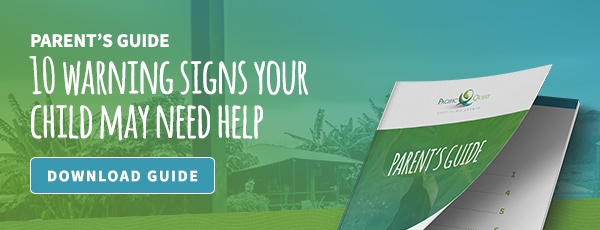According to a 2015 Girlguiding girl’s attitude survey, nearly half of female young adults in the UK have needed help improving the status of their mental health, but have struggled to find the proper support they need to overcome their challenges.
What’s worse, is the study shows specific concerns have evolved drastically over the last five years: Substance abuse issues such as binge drinking, smoking and drug use reported in 2010 have been replaced by self-harming, mental illness, depression and teen eating disorders in 2015.
Young females are feeling the disconnect between the issues they face and the concerns of their parents today, as 82 percent polled say adults don’t recognize the pressures they’re under. “There is an urgent need to update adult thinking to catch up with the reality of teenagers’ lives,” says Laura Bates, founder of the Everyday Sexism Project. There are many treatment options for troubled girls, including Wilderness Therapy among others. But you first have to know exactly what troubles your teen is facing.
So how can you talk to your daughter about the issues that matter most to her? Here are some talking points to get you started:
- Body Image and Teen Eating Disorders – Eating disorders have the highest mortality rate of any other mental illness, according to The National Association of Anorexia Nervosa and Associated Disorders. When talking to your teen daughter about this subject, encourage healthy eating habits and explain to her daughter that food is used to fuel the body as it grows, and nutritious, whole foods are the best kind of fuel. Discuss the dangers of dieting and the different teen eating disorders and the havoc it can wreak on the body. Act as a personal mentor to show her what a healthy body image looks like.
- Double Standards – Simply being aware of the double standards in our society is crucial for girls as they grow. Explain that it may not be fair, but double standards do exist. Use an example to illustrate your point. Here is one to try: Research has found that girls are more likely to experience pressure to sext, but are commonly judged more harshly when they participated in the act. Encourage your teen to keep her personal standards high so they can always feel good about their decisions and actions.
- Sexism – Unfortunately, sexism is still very alive and well in today’s society (just look at these statistics on the gender pay gap). Sexism may or may not ever affect your daughter, but discussing the subject still should remain a high priority. Remind your daughter to never let other’s gender boundaries set her back from what she truly wants. A proper feminist education is always of value.
- Domestic Violence – Once your teen nears the age where she may begin dating (between the ages of 13-18 on average), consider talking with her about domestic violence. Here are 10 questions to get the conversation started.
- Depression – If you suspect your teen is depressed, first and foremost let them know you are there for them unconditionally. Give them time and space to open up to you, and don’t give up. Acknowledge their feelings and understand that depression is more than just a buzzword. It is a clinical illness that left untreated, can cause major harm. Read here to learn some key differences between teenage and adult depression.
- Self Harm – Self-harm is most often associated with “cutting,” but it can take many other forms, including: burning, bruising, scratching, hair-pulling and poisoning. There are many reasons teens choose to participate in this behavior, and it can quickly turn into a habit that can be hard to break on their own. Those who self-harm often need to learn that it’s OK to feel their feelings. Feelings are meant to come and go, and it is our job to let this natural process occur. If your teen is feeling a lack of control in other aspects of their life, work to help them regain their confidence.
When talking about any of these subjects, it is vital you convey to your daughter that you care about her issues and are there to listen. Staying in tune with your teen will make it easier to keep the conversation open. If you feel anything is ever beyond your control, reach out for professional help. Wilderness Therapy for troubled girls can be a positive, life-changing experience. Pacific Quest is here for you and your family. For more information on if your teen daughter needs help, please download our free parent’s guide here.
